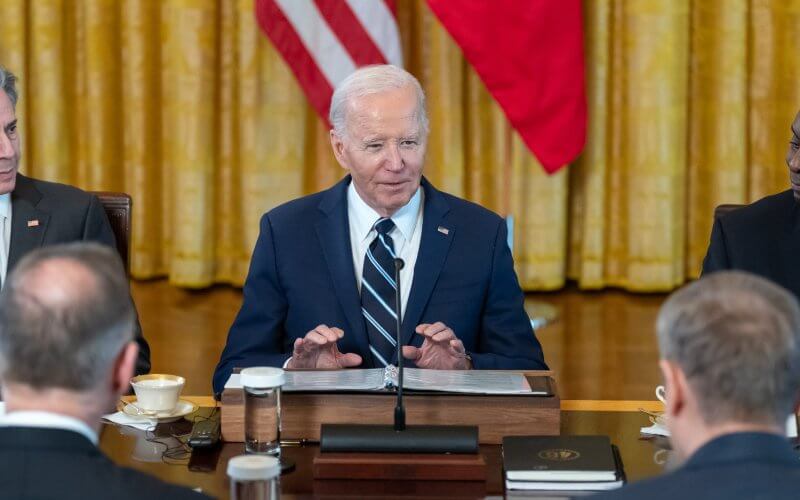By: Jake Smith, Daily Caller News Foundation
The U.S. military is no longer “prepared” to fight in a major war, according to a new study conducted by a congressional panel.
Though the threats the U.S. is facing are “the most serious and most challenging” it has seen in almost a century, the U.S. defense base is not equipped to meet the moment, according to a report from the Commission on the National Defense Strategy published on Monday. Among the biggest problems outlined in the report are a troubled Pentagon and a failure by the federal government to properly address threats emanating from adversaries like China and Russia.
“The United States last fought a global conflict during World War II, which ended nearly 80 years ago. The nation was last prepared for such a fight during the Cold War, which ended 35 years ago. It is not prepared today,” the commission’s report reads. “The United States is still failing to act with the urgency required, across administrations and without regard to governing party. This report proposes a new approach to spur the speed and scale of change.”
The congressionally established and bipartisan commission, made up of high-level defense and national security experts, is tasked with assessing the U.S. defense strategies and providing recommendations to Congress and the Pentagon. The most current report from the commission was created in part by the RAND Corporation, which provided “analytic, administrative, editorial, and publication support.”
Both China and Russia are bolstering their military capacity while working closer with one another, creating a looming threat from two of the world’s largest superpowers, the report reads. This relationship has also welcomed other American adversaries, such as Iran and North Korea.
But China remains the key player in the multi-nation axis, according to the report.
“The Commission finds that, in many ways, China is outpacing the United States and has largely negated the U.S. military advantage in the Western Pacific through two decades of focused military investment,” the report reads.
The new axis “creates a real risk, if not likelihood, that conflict anywhere could become a multitheater or global war,” according to the report.
The Pentagon is burdened with bureaucratic and slow-moving processes, relies on “decades-old military hardware” and has given way to a “culture of risk avoidance” that has contributed to a stagnate state, the report claims.
The military, itself, is also lagging behind in terms of “both the capabilities and the capacity required to be confident it can deter and prevail in combat,” according to the report. Newer technologies such as artificial intelligence, cyber warfare and hypersonic weapon capabilities are some of the examples listed as necessary to help modernize the military.
More broadly, the U.S. defense base is “unable” to meet the needs of American allies in terms of military and technology equipment, according to the report. In the event of a multi-theater war, the U.S. will need to work with allies to amplify its military-industrial complex production capabilities, given that it alone is “unable to produce everything needed.”
In its new report, the Commission on the National Defense Strategy warns of mounting security threats, stresses innovation, and recommends strengthening the DoD as part of an "all elements of national power" approach to security. https://t.co/5daqljphsp
— RAND (@RANDCorporation) July 29, 2024
The commission recommended in the report that Congress and the Pentagon rework existing laws and regulations so that any “barriers to adopting innovation, budgeting, and procurement” can be removed. Congress should strip away relevant budget caps and ensure that more funding can be appropriated to the Pentagon for the most pressing national security needs, according to the commission.
The Pentagon should also conduct a sweeping review of its major systems to ensure they are up-to-date and battle-ready, and discard any programs that are headed toward obsoletion, according to the commission.
“Implementing these recommendations to boost all elements of national power will require sustained presidential leadership and a fundamental change in mindset at the Pentagon, at the National Security Council and across executive branch departments and agencies, in Congress, and among the American public writ large,” the report reads.
“[We] agree with the Commission’s position that there is still much to do to fully achieve our strategic objectives,” a Pentagon spokesperson told the Daily Caller News Foundation. “We look forward to further advancing the strategy as we continue to defend our Nation and our interests abroad.”
Related Story: Pentagon Schools Encouraged Students to Be Left-Wing Activists, Pushed DEI on Kids and Teachers, Docs Show









